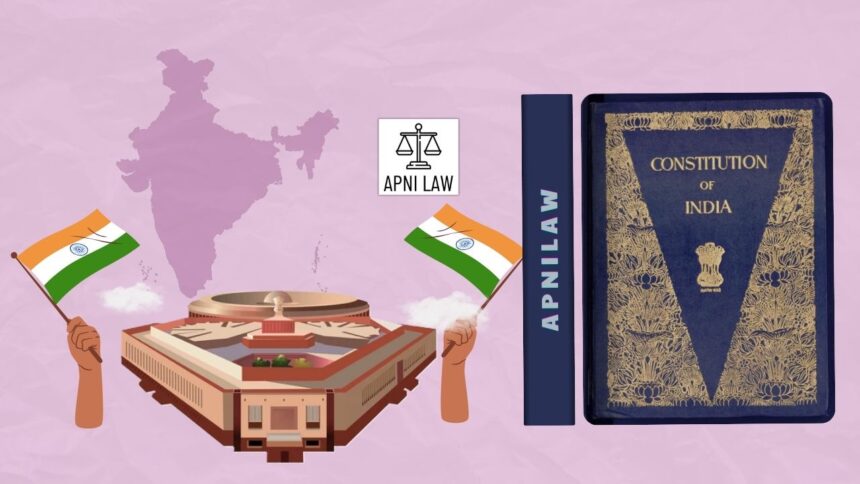The Representation of the People Act, 1951 (RPA 1951) is one of India’s most important election laws. Enacted soon after independence, it ensures the conduct of free, fair, and transparent elections to the Parliament and State Legislatures. The Act provides the complete legal framework for how elections are organized, how candidates are selected, how votes are cast and counted, and how election disputes are resolved. It acts as the backbone of India’s electoral democracy.
Objectives and Scope
The RPA 1951 was enacted under the powers granted by Articles 324 to 329 of the Constitution, which allow Parliament to make laws on elections. Its main purpose is to regulate all aspects of the electoral process, from nominations to dispute resolution.
It lays down the qualifications and disqualifications for candidates, procedures for conducting elections, and provisions for registering political parties. The Act also addresses electoral malpractices, defines corrupt practices, and provides mechanisms for dealing with election petitions in case of disputes.
Features and Provisions
The RPA 1951 sets clear rules for maintaining the integrity of India’s electoral process.
Qualifications and Disqualifications
The Act specifies who can contest elections to Parliament or State Legislatures. A candidate may be disqualified for reasons such as criminal conviction, corrupt practices, government contract conflicts, dismissal for corruption, or failure to report election expenses.
Conduct of Elections
It regulates every step of the election process, including delimitation of constituencies, preparation of electoral rolls, nomination of candidates, voting procedures, and counting of votes. These rules ensure that the process remains uniform and transparent across the country.
Regulation of Political Parties
Under Section 29A, every political party must register with the Election Commission of India (ECI) to participate in elections. This helps maintain transparency and accountability among political groups.
Corrupt Practices and Election Offenses
Section 123 defines acts like bribery, undue influence, and booth capturing as corrupt practices. These are treated as serious electoral offenses, and candidates found guilty can be disqualified or have their elections voided.
Election Expenditure
Section 77 regulates how much money candidates can spend on their campaigns. It requires candidates to maintain detailed accounts of expenses, preventing the misuse of money power during elections.
Voting Rights
According to Section 62, only individuals listed in the official electoral roll have the right to vote. This ensures fair inclusion and prevents duplication or impersonation.
Dispute Redressal
Election petitions can be filed to challenge the validity of an election. Section 100 outlines the grounds on which an election may be declared void, such as corruption, improper nomination acceptance, or candidate ineligibility.
Role of the Election Commission
The Act grants the Election Commission of India the authority to supervise, direct, and control the conduct of elections. The ECI ensures compliance with the law, monitors the schedule, oversees nominations, and enforces ethical conduct during elections.
Major Sections of RPA 1951
- Section 8: Disqualification based on criminal convictions.
- Section 29A: Registration of political parties with the Election Commission.
- Section 33: Outlines the nomination process for candidates.
- Section 62: Provides for voting rights to registered voters.
- Section 77: Regulates election expenses to maintain fairness.
- Section 100: Lists grounds for declaring an election void.
- Section 123: Defines corrupt practices like bribery and undue influence.
Importance
The Representation of the People Act, 1951 is crucial to maintaining the democratic integrity of India. It helps prevent electoral fraud, curb malpractice, and ensure transparency in political competition. Over the years, the Act has been amended to tackle new challenges, such as increasing political accountability and regulating the use of money and muscle power.
This law enables the Election Commission of India to conduct one of the largest democratic exercises in the world, ensuring that every voter’s voice is heard. It protects the foundation of India’s democracy by promoting fairness, inclusiveness, and equal opportunity in the electoral process.
For any specific query call at +91 – 8569843472
Conclusion
The Representation of the People Act, 1951 serves as the legal backbone of India’s electoral democracy. It safeguards the legitimacy of elections and ensures that the process remains free from corruption and manipulation. By setting clear rules for candidates, parties, and election authorities, the Act reinforces the values of transparency, accountability, and fairness that lie at the heart of the Indian Constitution.
As India continues to evolve politically and technologically, the RPA 1951 remains vital in guiding the nation’s democratic journey toward greater integrity and participation.








